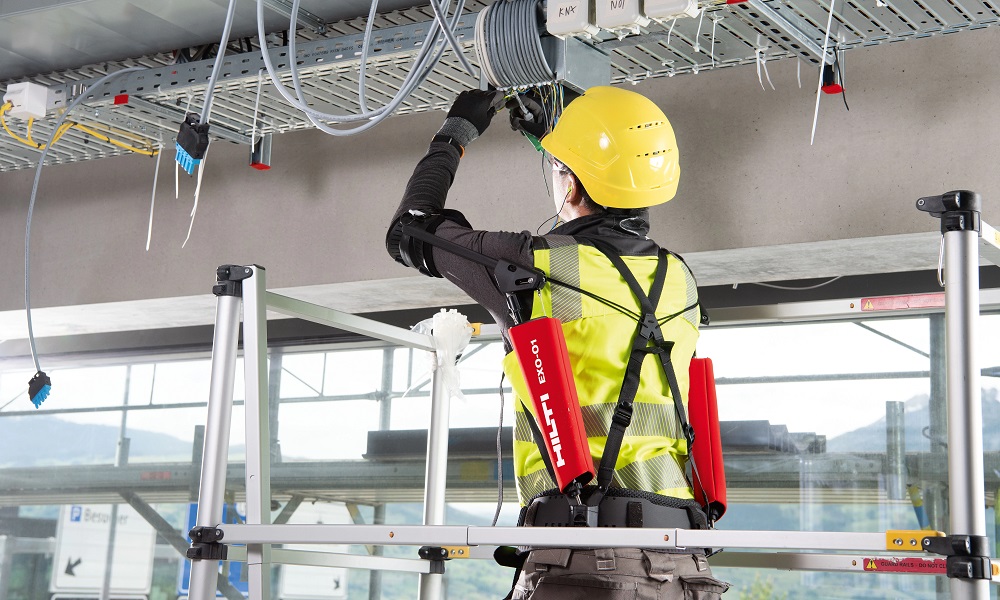Construction tools manufacturer Hilti has developed a wearable exoskeleton for workers – a “human augmentation device” that is deigned to help commercial contractors, tradesman and management alike tackle health and safety as well as labour shortage challenges.
The company said in a statement that the EXO-O1 wearable exoskeleton, developed by Hilti North America in collaboration with Ottobock, is more connected to its customers than any tool of its time and will help reduce strain and fatigue for both experienced and novice users, at a time when the industry is managing a workforce shortage challenge.
According to the statement, to create the EXO-O1, the Hilti Group partnered with Ottobock, a global leader in prosthetics, orthotics and exoskeletons that help people increase and retain their physical independence. Hilti is currently testing the new exoskeleton on actual job-sites and will be bringing the product to market later this year.
Johannes Huber, head of Business Unit Diamond Systems at Hilti Group, said: “We want to improve the health and safety of our customers, directly impacting job-site productivity – so they can stay on time and on budget. Customers that embrace innovation and invest in the latest health and safety technology will be better able to attract and retain the best people as well as keep their job-sites productive.”
The EXO-O1 is Hilti’s first foray into exoskeletons for the construction industry and the brand said it will make more developments in human augmentation going ahead. The exoskeleton development is initially focused on overhead and shoulder height and above applications because this type of motion is so physically intensive and fatiguing. Hilti also plans to offer implementation, training and support services on site for its customers and their teams.
Rafael Garcia, Senior VP and CMO of Hilti North America, said: “Our innovations have always been fuelled by our deep understanding of our customers’ challenges and needs, so it’s only natural that we can drive innovation with solutions for human augmentation and job-site automation. Human augmentation and job-site automation, alone or combined, will create productivity gains the likes of which haven’t been seen since cordless tools got a foothold in commercial construction.”
